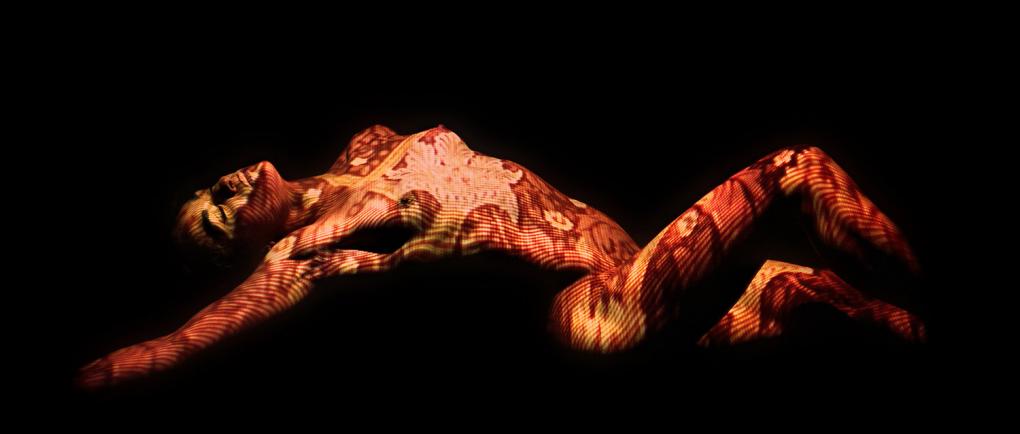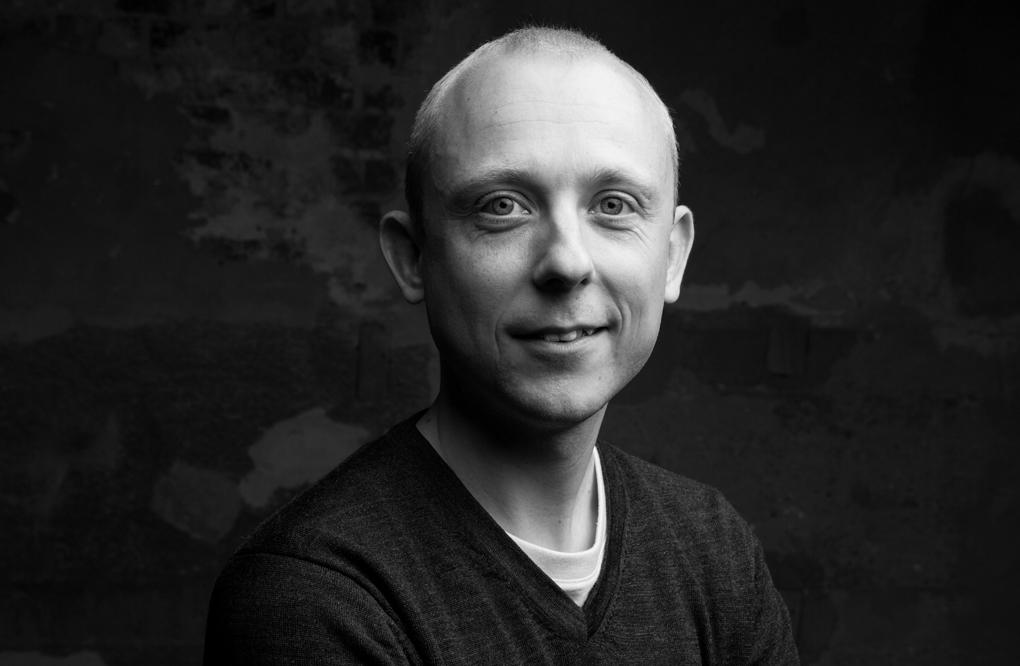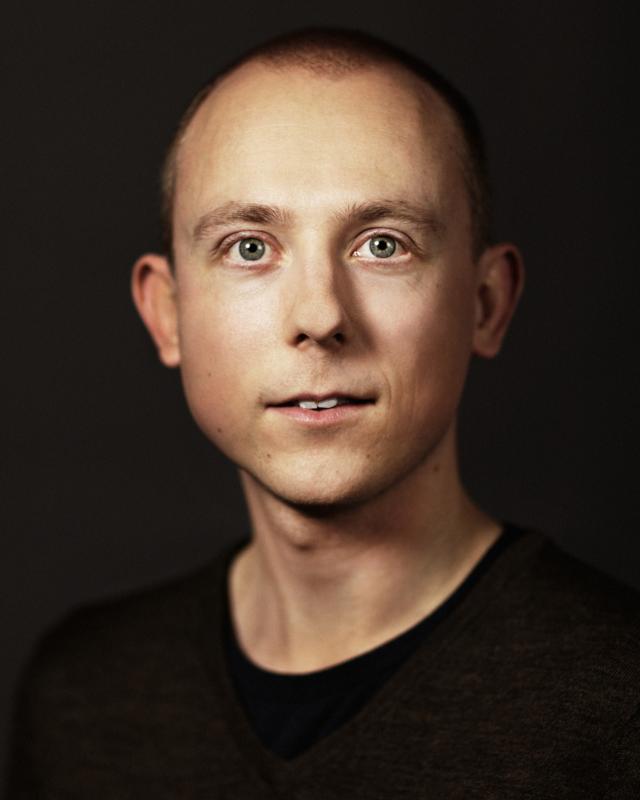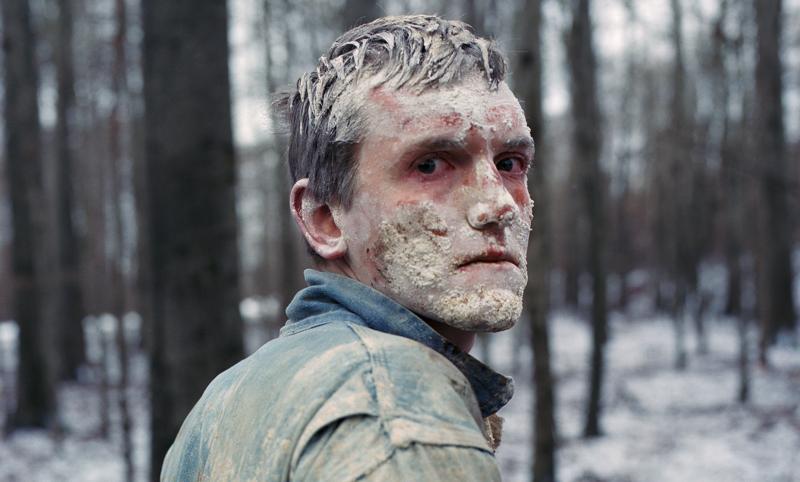
Features must be redefined, and Per Damgaard Hansen wants to help make that happen.
Four years ago, the 34-year-old producer started his own production company, Masterplan Pictures, with then classmate at the National Film School Julie Waltersdorph Hansen. Their master plan is to make features that push the boundaries of the medium and challenge audiences through sound and images.
They have already exceeded expectations with their, and director Hlynur Pálmason’s, first feature, 'Winter Brothers,' which has won raves for its dizzying sensory bombardment in a story about two brothers who work in a limestone quarry in a snow-covered small town. The film won three awards when it world premiered at Locarno and went on to win the main award at CPH PIX – along with nine Robert Awards and two Bodil Awards at Denmark's two most distinguished film prize events, including for best feature at both events.
Director Pálmason was in the same class at the Film School as Masterplan’s founders. The opportunity to grow their collaboration was a major incentive for the two producers to hang out their shingle.
"We started at the Film School in 2009, and when we were about halfway through, many of the established production companies declared that they were not prioritising talent development. Julie and I could probably have gone out and found work as producers, but we had already found each other and formed working relationships with directors, writers and DPs that we wanted to grow. The prospect of doing that at the established production companies was bleak," Damgaard Hansen says.
"At the same time, we saw an industry that wanted something to happen. There was talk of fatigue in general and a discussion about where Danish cinema should be heading, an overall desire to try something new."
Impact through sound and images
A 2013 New Danish Screen talent development initiative, 'Shoot It!,' hatched Masterplan’s first short film, 'Seven Boats,' directed by Pálmason. When the film was selected for Toronto, the company was in business – and ready to take a shot at innovating.
"We want to make films that challenge the film medium and push boundaries. That’s the guiding light for all our projects," Damgaard Hansen says. Now that TV series have largely taken over classical narratives, features need to focus on other things.
"I think features need to be redefined. For a long period, Danish film has focused on the 'natural story,'" the producer says, referring to a concept about anchoring stories in real life, coined by the influential Film School dramaturgy instructor Mogens Rukov.
"There was a good reason for that, but we seem to have reached the point where the theatrical experience needs to be something else. Having the audience sit in rapt attention in the dark cinema offers opportunities to tell stories in new ways that affect us more through sights, sounds and abstractions.
"I personally find it totally magical to sit in the dark cinema and let images and sounds wash over me. The physical and mental impact can be mind-blowing. I think that’s important experientially and artistically. Features aren’t better than TV shows. It’s just a different experience, which in itself is significant."
Sharing a vision
Damgaard Hansen was introduced to the film industry as a 12-year-old child actor. Acting was "a game," he says, but the experience whetted his curiosity about the medium, especially when he started shooting his own little films on the set with a camcorder he bought for his first paycheck. After high school, he started film and media studies at the University of Copenhagen, but along the way, he realised that being a producer was what he wanted, and he applied to the Film School.
"Being a producer is stimulating, because I get to indulge my curiosity and have a hand in all aspects of film production, working with all the creative functions from the first glimmer of a concept through to the film’s afterlife. The job involves midwifing a vision that has grown out of a director, but as I see it, it becomes everybody’s vision. I, for one, have a hard time producing something, if I don’t have a vision for it," he says.
Masterplan’s coming films all embody Damgaard Hansen’s vision of "taking the audience on an audiovisual journey."
'The Blue Orchid' is the first feature film directed by Carl Marott, another Film School classmate. Damgaard Hansen describes the film as "a fever dream about a young man who is sucked into an alternate reality and completely loses touch with the real world." The film is currently in post-production.
Masterplan also has a film by Simon Staho in production, though Damgaard Hansen can’t talk about it in detail right now. Moreover, the producer is developing a film by another Danish-Icelandic first-time feature film-maker, Anna María Helgadóttir.

Box office isn’t everything
Damgaard Hansen takes a positive view of the business opportunities of arthouse production, if you look at the world market as a whole. He believes audiences are ready to be challenged.
"I’m seeing a movement. In the wake of the financial crisis, there was no room to experiment, and I think we need to recultivate that market. 'Winter Brothers' is a good example that the market for art films is bigger than we thought. There is an audience for experimental films. But to get people into theatres, there have to be quality films out there."
Looking at admissions as the only parameter of success is way too narrow a perspective.
"It’s just as important to have the kinds of films that take the medium to a new level. That’s what commercial movies will be building their success on 10 years from now. Without experimentation, commercial films stagnate, too."
Damgaard Hansen’s goal is clear.
"I dream that we can continue to do the kinds of projects we want to do. That we can maintain our curiosity and openness and make films that push the boundaries of what the medium of film is and what it is capable of."


